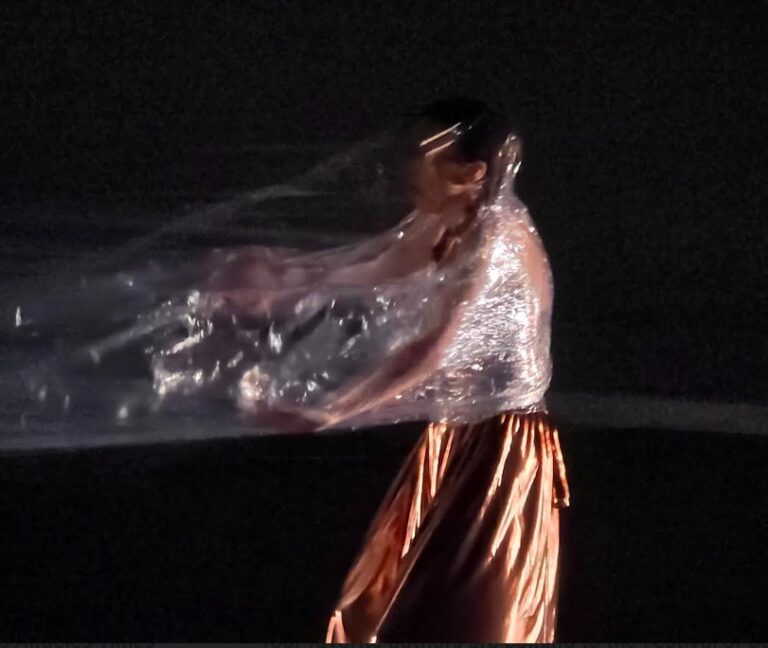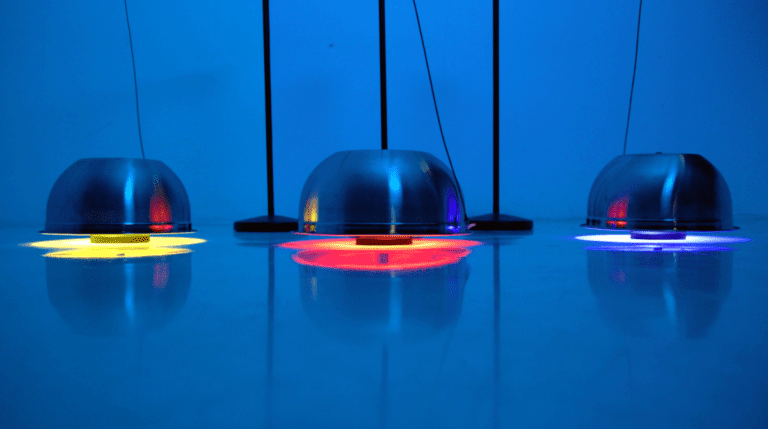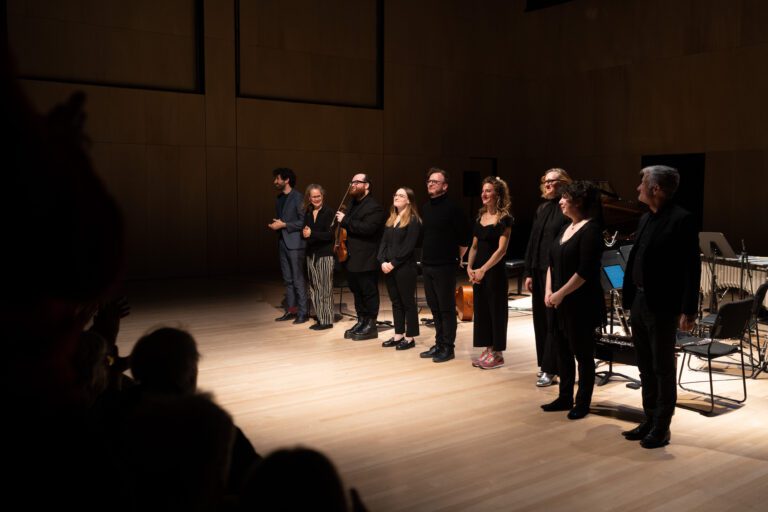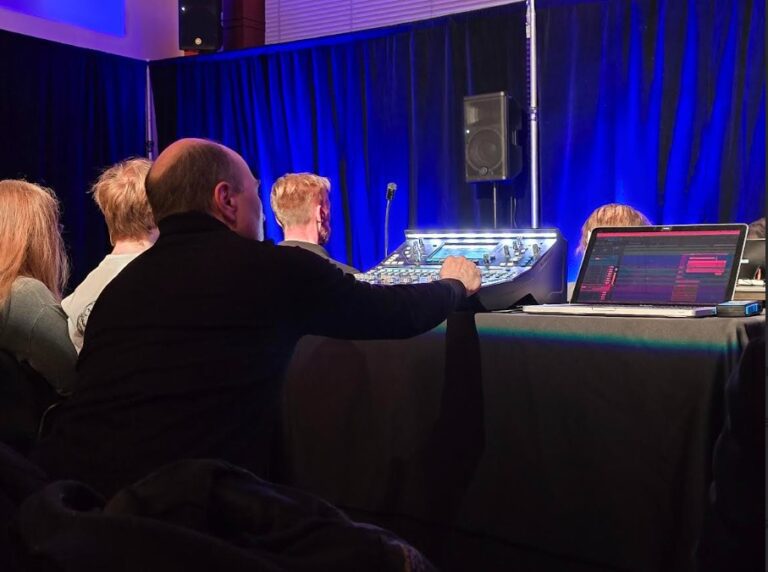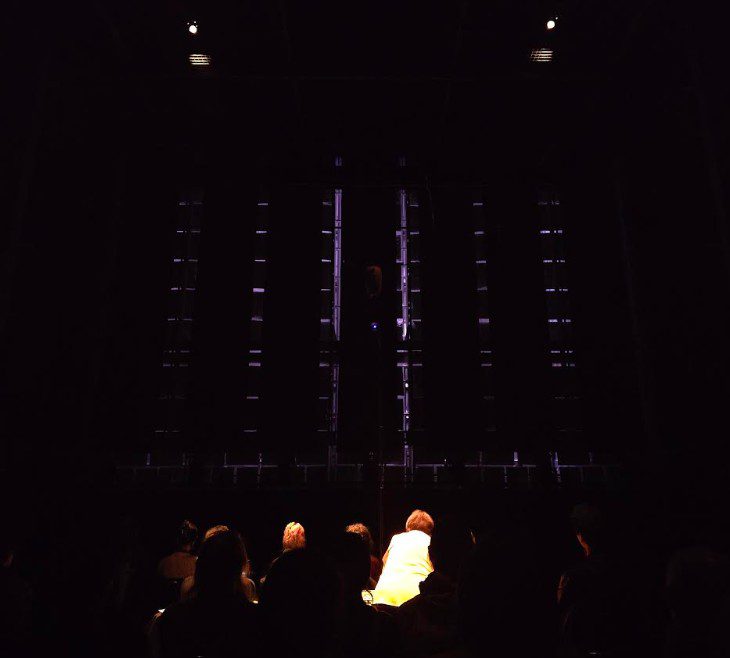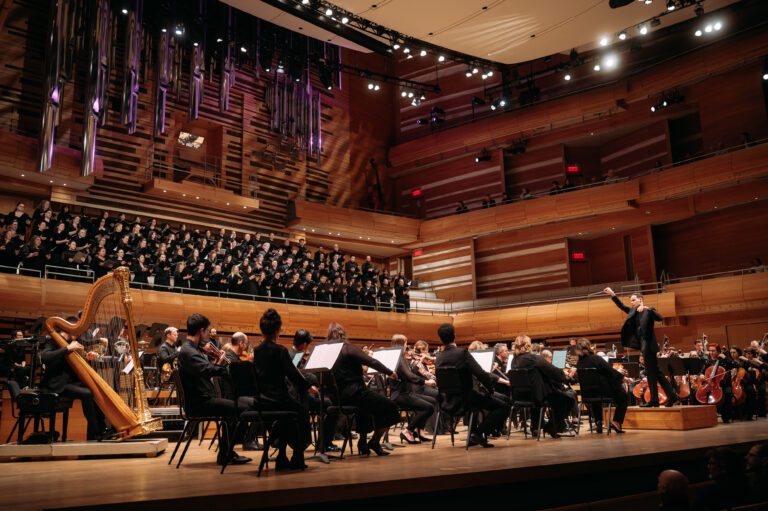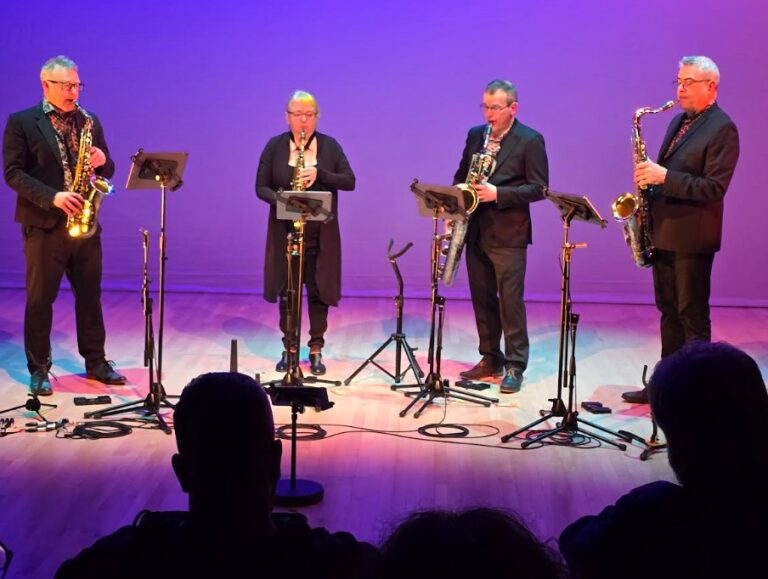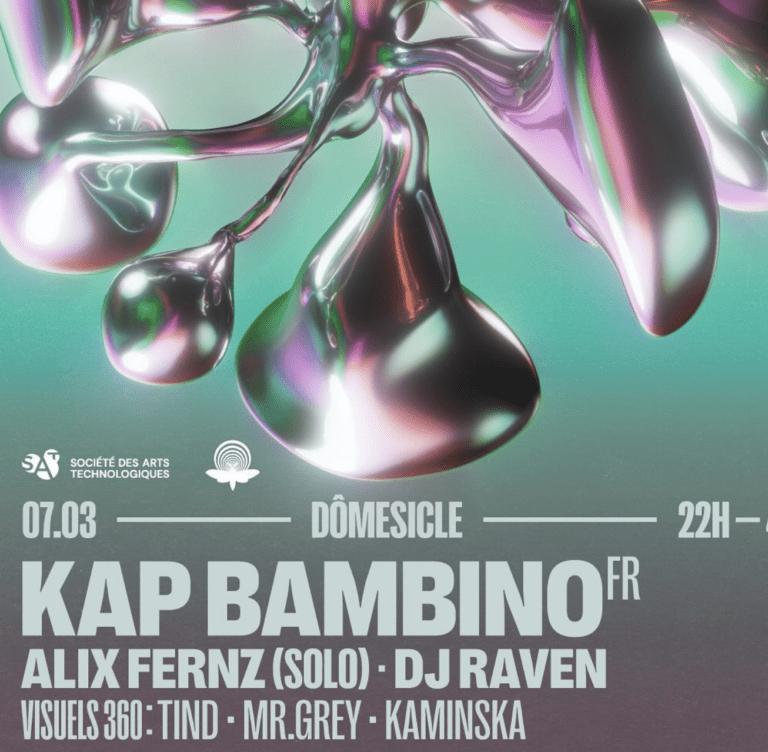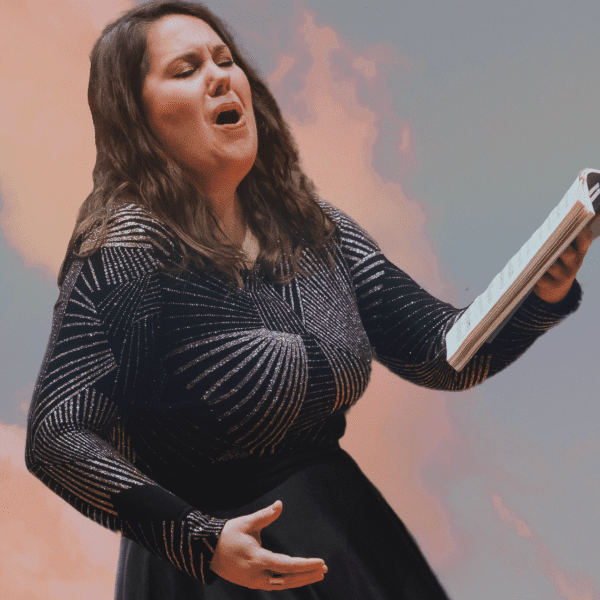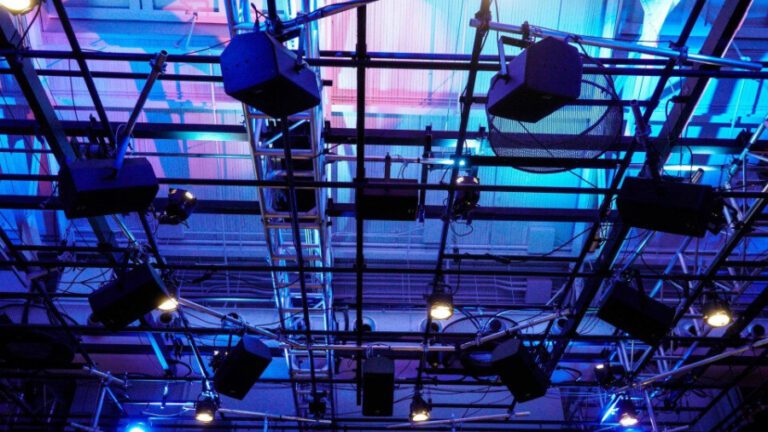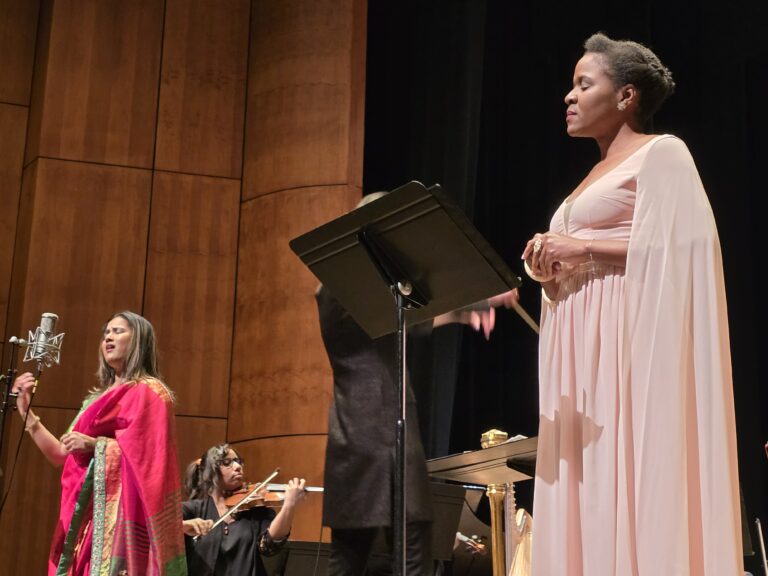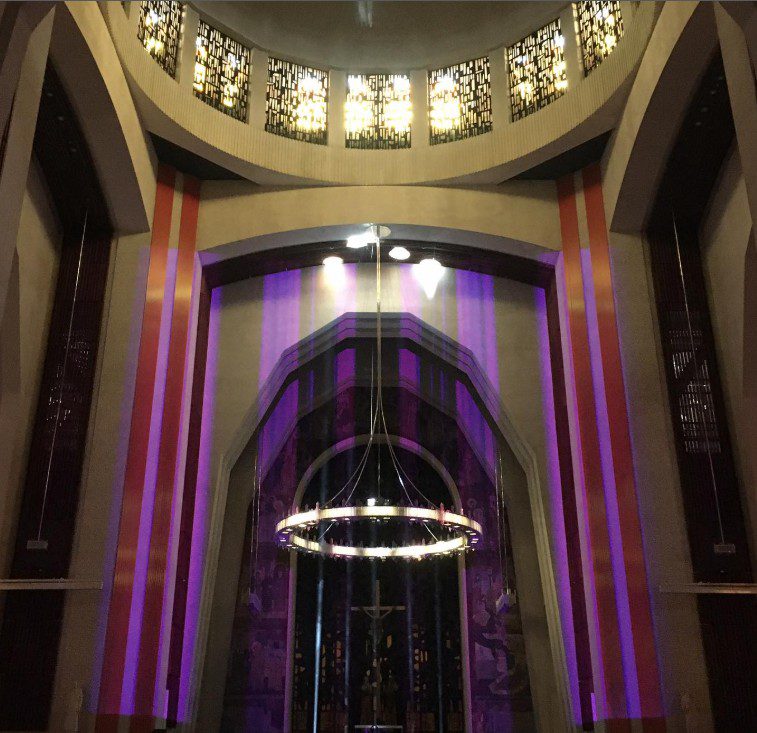After attending the Baptême du Haut-Parleur on Thursday, it was easy to conclude that this multimedia performance – techno-opera, if you prefer – was the most unifying event of the third Semaine du Neuf. The most striking.
And why? For the high quality of its form and content. For the ideal balance achieved between formal innovation and emotional charge. First, there are the markers: everything in this work is easy to identify. The dramatic framework, the musical references, the sets, the projections, the recordings, the real-time acting, the lighting – in short, all the elements of this Baptism employ familiar codes and make for an infectious proposition, something that few performances of its kind manage to generate. But this one has the potential to make an impression on the imagination and reach beyond avant-garde circles – in this case, beyond the audience at Wilder’s Espace Orange.
More precisely, there’s the hilarious yet dramatic anthropomorphism of a loudspeaker-turned-character, specifically the Genelec 8020D. It’s a magnificently critical stance on our almost fetishistic dependence on sound technologies and more… but since this is obviously a multidisciplinary proposition dominated by music, let’s stick to sound fetishism.
There’s a set made up of a sort of talking scarecrow, providing part of the subtext; there are boxes and wrapping paper arranged haphazardly at the back of the stage; there’s a square screen that completes the spectral embodiment of technology.
There’s also the paradoxical relationship we have with high-fidelity objects and technology in general. “…for me,” explains Charles Quevillon in the interview with Judith Hamel, ”there’s a common thread that criticizes over-consumption in contemporary society, but there’s also a story of love and enchantment, a phase of infatuation, then a gradual awareness of the complex baggage this object carries, after my character has developed an attachment to the object and declared his love for it.” An important nuance, because while we can certainly criticize excessive consumption in capitalist markets, neither can we criticize our attachment to certain objects that are the fruit of it… forbidden?
There’s also this fluid, effective integration of musical referents: lyrical song, folklore, contemporary music, electronic music (drone, techno, dark ambient, etc.) all serve simple, effective, easy-to-integrate forms. The complexity of the work lies more in the nature of the blend of its practices than in its musical frameworks as such.
Three on-stage protagonists focus on the existence and destiny of a loudspeaker who is treated like a child, or at the very least, a protégé: Montreal singer Sarah Albu, a wacky soprano for the occasion, is the central character, assisted by accordionist Matti Pulkki (with whom she forms the duo Sawtooth) and multidisciplinary designer Charles Quevillon, who also officiates on stage as a third character in various incarnations.
For a packed hour, four tableaux unfold before our eyes and ears: Délivrance, Mémoires, Souffrance, Sublimation. These four angles of attack are designed to explore our paradoxical relationship with technology. Our fascination with its advances and the genesis of new high-performance objects, our own history through the objects we own, our tyranny with the objects of our consumption, and our ways of sublimating their nature.
Integrated) home run? I’ll give you a thousand guesses.
